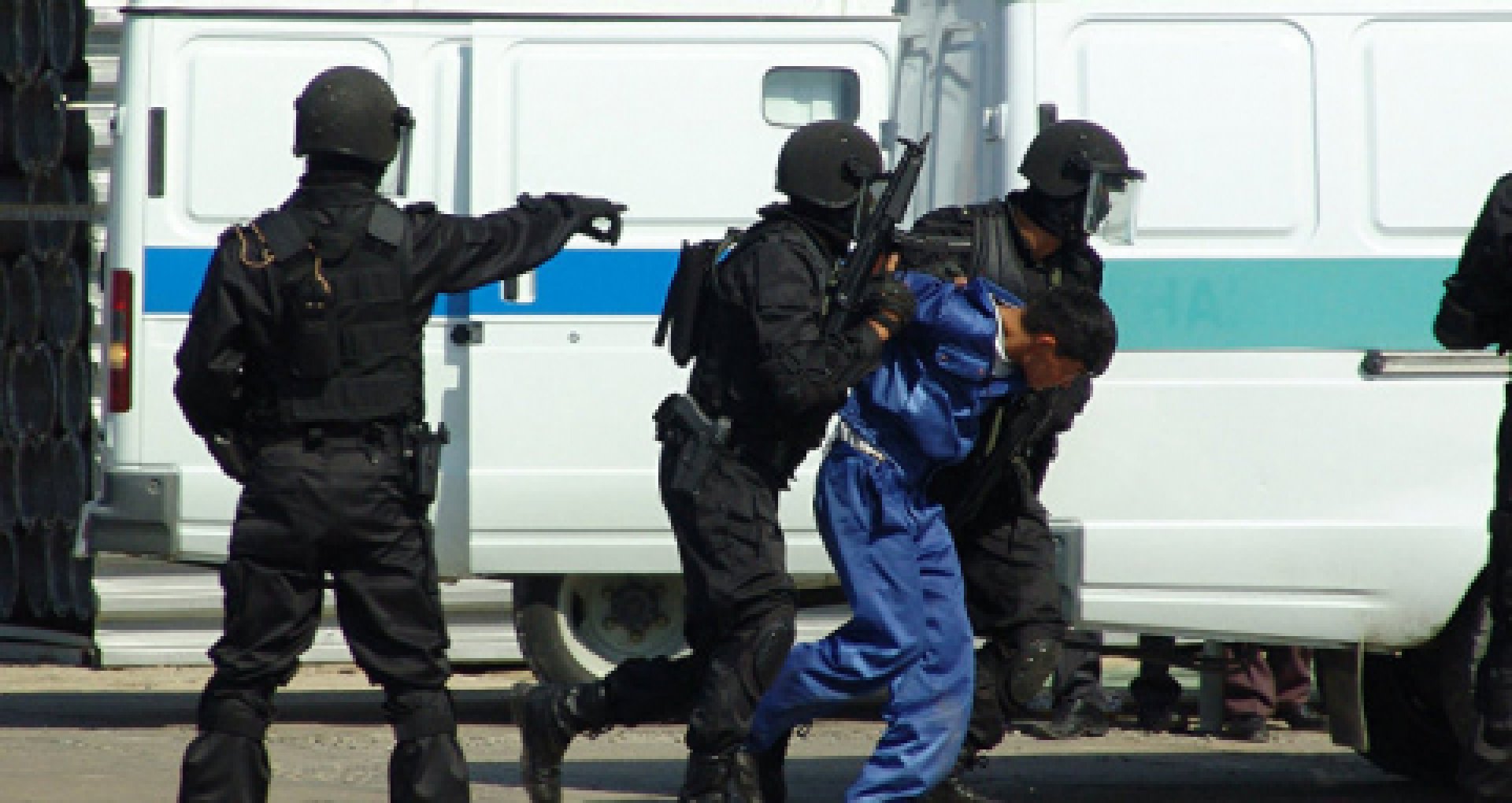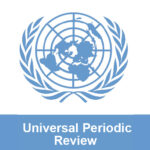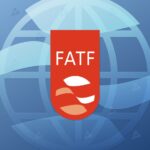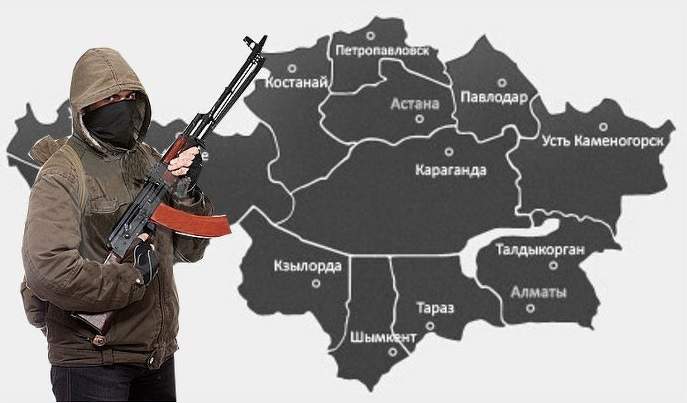Countering and prevention of religious extremism have been declared by Kazakhstan as one of priority directions of the national policy. Legal framework is being improved, a lot of national programs have been approved, various state and public bodies responsible for such issues were being created.
However, civil society organizations, including the Kazakhstan International Bureau for Human Rights and Rule of Law, expresses concern about the state’s counter-terrorism measures and their impact on civil society and nongovernmental organizations.
Kazakhstan’s legislation concerning the fight against terrorism, including its financing, in addition to the term “terrorism”, widely uses the legally vague term “extremism”.
As a result, for example, in the Law of the Republic of Kazakhstan of 2009 “On Counteraction of Legitimization (Laundering) of Incomes Received by Illegal Means, and Financing of Terrorism”, despite its name, “extremism” is mentioned in a number of articles, in particular, in Article 12 “Targeted financial sanctions related to the prevention of terrorism and financing terrorism”. In addition to the Law of the Republic of Kazakhstan of 1999 “On Countering Terrorism”, there is a separate Law of the Republic of Kazakhstan of 2005 “On Countering Extremism”.
There are 12 articles in the Criminal Code of the Republic of Kazakhstan that establish criminal liability for so-called “extremist crimes”, including Article 174 “Incitement of social, national, tribal, racial, class or religious discord”, Article 179 “Propaganda or public calls for the seizure or retention of power, as well as the seizure or retention of power or forcible change of the constitutional order of the Republic of Kazakhstan”, Article 182 “Creation, leadership of an extremist group or participation in its activities”, Article 258 “Financing of terrorist or extremist activities and other assistance to terrorism or extremism”, Article 260 “Terrorist or extremist training”, Article 404 “Creation, leadership and participation in the activities of illegal public and other associations” (Parts 2 and 3) and Article 405 “Organization and participation in the activities of public or religious associations or other organizations after a court decision banning their activities or liquidation in connection with their extremism or terrorism.”
Persons found guilty of committing “extremist” crimes are often subject to additional punishment in the form of a ban on engaging in “public activities”. Since there is no legal definition of the term “public activity” in Kazakh legislation, the courts prohibit these persons, for example, from organizing and participating in peaceful assemblies, using the Internet or participating in the activities of public organizations.
On the basis of Article 12 of the Law of the Republic of Kazakhstan on Counteraction of Legitimization (Laundering) of Incomes Received by Illegal Means, and Financing of Terrorism, a list of organizations and persons associated with the financing of terrorism and extremism has been created, and it automatically includes individuals convicted of all terrorist and extremist crimes, regardless of whether they participated in the financing terrorism or not. The person’s term of punishment plus the term of possible additional punishment in the form of deprivation of the right to engage in public activities, which can be imposed for a period of 1 to 10 years, plus a criminal record of 6 or 8 years, depending on the severity of the crime. That is, after the end of the sentence (usually in the form of imprisonment), a person is on this List for several years, and it can be 18 years at most.
Being on the List restricts the person included in it in receiving money from bank accounts (only in the amount of the minimum wage per family member per calendar month), the ability to open a company or work as an individual entrepreneur, conclude insurance contracts and a number of other restrictions.
Thus, the accounts of a civil activist from Almaty, Olesya Halabuzar, according to which she receives alimony for three minor children, turned out to be unavailable to her at the end of December 2017. She was included in the list of organizations and persons “associated with the financing of terrorism and extremism”, in accordance with article 12 of the law “On Countering the Legalization (Laundering) of Proceeds from Crime and the Financing of Terrorism.” In addition to Olesya Halabuzar, the authorities added previously convicted civil activists from Atyrau Max Bokaev and Talgat Ayan, Bolatbek Blyalov from Astana, Ermek Narymbayev from Almaty and many others to the list. One of the grounds for inclusion in this list of citizens is a court verdict that has entered into legal force on finding a person guilty of committing an extremist and terrorist crime. All those convicted under article 174 of the Criminal Code “for inciting discord”, which is often used in Kazakhstan, also get there.
Former prisoner Zhaslan Suleimenov from Astana says that at the trial on the imposition of three-year administrative supervision on him and his brother Kuat Zhobolayev after their release from prison, no one told them that they were deprived of access to all banking and notary services, as they were included in the list of organizations and persons “related to financing terrorism and extremism”. Zhaslan Suleimenov moves in a wheelchair and is a disabled person of the first group, for this reason he is entitled to an individual assistant, to whom the salary is given by the state. He receives his disability allowance with the help of a courier in cash on the payroll and calls it the “grandfather’s method”. He also recently found out that he cannot issue a power of attorney for someone because he is on this list.
Therefore, when including in the list of organizations and persons “associated with the financing of terrorism and extremism”, there is no individualization.
Such use of the term “extremism” has practically legal consequences and restrictions, including in the financial sphere, similar to the use of the term “terrorism” and has a direct negative impact on civil society and human rights and freedoms, in particular on freedom of speech and expression, freedom of association and peaceful assembly and other rights.
These problems were pointed out by the UN Special Rapporteur on the rights to freedom of peaceful assembly and freedom of association, who visited Kazakhstan in 2015, UN Special Rapporteur on the promotion and protection of human rights and fundamental freedoms while countering terrorism, who visited Kazakhstan in 2019 year, as well as the UN Human Rights Committee, which reviewed in 2016 the next report of the Republic of Kazakhstan on the implementation of the International Covenant on Civil and Political Rights (CCPR/C/KAZ/CO/2).
It is recommended to exclude from the legislation of the Republic of Kazakhstan the term “extremism” as extremely vague, not having a clear legal definition and used in violation of the International Convention for the Suppression of the Financing of Terrorism, in which it is not used, and FATF Recommendation 8, in which it is also not used.
The main law in this area is the Law of the Republic of Kazakhstan “On Counteraction of Legitimization (Laundering) of Incomes Received by Illegal Means, and Financing of Terrorism”, which was amended in July 2018, May and June 2020 (hereinafter – the Law of the Republic of Kazakhstan of 2009 “On Counteraction of Legitimization (Laundering) of Incomes Received by Illegal Means, and Financing of Terrorism”). In accordance with the latest amendments of May 13, 2020, the Law of the Republic of Kazakhstan of 2009 “On Counteraction of Legitimization (Laundering) of Incomes Received by Illegal Means, and Financing of Terrorism” was supplemented with a new article 12-2 concerning NGOs, which comes into force on November 15, 2020: “Article 12-2. Measures to protect charitable organizations and religious associations from their use for terrorist financing
1. Charitable organizations, as well as religious associations applying for voluntary donations, take measures according to which their activities will not be used for the purpose of financing terrorism, and are also obliged to:
1) make payments and money transfers at the request of third parties or on their own initiative through financial monitoring entities;
2) provide, upon request, financial statements on transactions with money and (or) other property and information on identified risks to the authorized body;
3) keep for at least five years information about transactions with money and (or) other property subject to mandatory state registration, as well as about the founders (participants).
2. If a charitable organization, as well as religious associations, have suspicions about their use for the purpose of financing terrorism, they send the relevant information to the authorized body.”
The requirements provided for in this article are not burdensome, but the selection of these two types of NGOs (charitable and religious) to regulate their activities under this law was not based on the results of an assessment of the risks of terrorist financing in the NGO sector, which means that such selection does not comply with international FATF standards.
It is recommended to conduct/conduct a systematic risk assessment to determine more accurate risk criteria.
The criminal and administrative responsibility is an issue of great concern in this area. The Criminal Code and the Code of Administrative Offenses contain articles providing for liability for offenses in this area (Article 218 of the Criminal Code of the Republic of Kazakhstan “Legalization (laundering) of money and (or) other property obtained by criminal means”, Article 214 of the Criminal Code of the Republic of Kazakhstan “Violation of the legislation of the Republic of Kazakhstan on Counteraction of Legitimization (Laundering) of Incomes Received by Illegal Means, and Financing of Terrorism”, etc.).
Amendments of May 13, 2020 to the Law of the Republic of Kazakhstan of 2009 “On Counteraction of Legitimization (Laundering) of Incomes Received by Illegal Means, and Financing of Terrorism” also introduced additional liability of financial monitoring entities for non-compliance with the requirements of legislation on counteraction of legitimization (laundering) of incomes received by illegal means, and financing of terrorism in terms of not providing information at the request of the authorized body., which comes into force on November 15, 2020. Thus, Article 214 of the Administrative Code of the Republic of Kazakhstan introduced administrative liability for:
“- failure, untimely provision by subjects of financial monitoring of information on transactions with money and (or) other property subject to financial monitoring, provided for in paragraphs 3 and 5 of Article 4 of the Law of the Republic of Kazakhstan “On Counteraction of Legitimization (Laundering) of Incomes Received by Illegal Means, and Financing of Terrorism”, in the form of a fine on individuals in the amount of fifty, … non-profit organizations – in the amount of one hundred and forty … monthly calculation indices.
– failure to provide, late provision by subjects of financial monitoring of information, information and documents at the request of the authorized body for financial monitoring – in the form of a fine on individuals in the amount of thirty, … non-profit organizations – in the amount of eighty… monthly calculated indicators.
– non-fulfillment by the subjects of financial monitoring of the training and training program in the field of countering the legalization (laundering) of proceeds from crime and the financing of terrorism, approved by the rules of internal control in the form of a fine on individuals in the amount of twenty, … non-profit organizations – in the amount of fifty … monthly calculation indices.
– failure, untimely provision by financial monitoring entities of information on transactions with money and (or) other property subject to financial monitoring, provided for in paragraph 1 of Article 4 of the Law of the Republic of Kazakhstan “On Counteraction of Legitimization (Laundering) of Incomes Received by Illegal Means, and Financing of Terrorism”, in the form of a fine on individuals in the amount of thirty, … non-profit organizations – in the amount of eighty monthly calculation indices.”
Every year, articles for violating FATF requirements in Kazakhstan are being detailed and expanded.
It is recommended to exclude discriminatory norms against NGOs from the legislation of the Republic of Kazakhstan as inconsistent with FATF Recommendation 8.
Civil society has concerns related to legislation that establishes requirements for additional reporting of NGOs. For example, the Law of the Republic of Kazakhstan dated November 16, 2015 No. 403-V “On Amendments and additions to some legislative acts of the Republic of Kazakhstan on charity”; the Law of the Republic of Kazakhstan dated December 2, 2015 No. 429-V “On Amendments and additions to some legislative acts of the Republic of Kazakhstan on the activities of non-governmental organizations”; The Law of the Republic of Kazakhstan on Amendments and Additions to Some Legislative Acts of the Republic of Kazakhstan on payments and Payment systems dated July 26, 2016 No. 12-VI ZRK, etc., as well as numerous by-laws and amendments to them.
For example, the order of the Minister of Culture and Sports of the Republic of Kazakhstan dated February 19, 2016 No. 51 “On approval of the Rules for providing information about their activities by non-governmental organizations and the formation of a database about them.” These regulations provide for additional reporting for non-profit organizations receiving funding from foreign sources (except for political parties, trade unions, religious organizations) and for charitable organizations.
In this regard, it is recommended to exclude from the legislation of the Republic of Kazakhstan the norms introducing mandatory additional reporting for NGOs as discriminating and as inconsistent with FATF Recommendation 8.
In addition, there is another block of legislation regulating the activities of financial monitoring entities and affecting the financial transactions of NGO. For example, the Order of the Minister of Finance of the Republic of Kazakhstan dated September 30, 2020 No. 938 “On approval of the Rules for Submission by Financial Monitoring Entities of information and information on transactions subject to Financial monitoring and signs of identification of a suspicious Transaction”, which entered into force on October 7, 2020. (hereinafter referred to as the Order dated October 7, 2020), replacing the Resolution of the Government of the Republic of Kazakhstan dated November 23, 2012 No. 1484 “On Approval of the Rules for the Submission by Financial Monitoring Entities of Information and Information on Transactions subject to Financial Monitoring and Signs of determining a suspicious Transaction” ; Joint Order No. 928 of the Minister of Finance of the Republic of Kazakhstan dated September 28, 2020 and No. 427 of the Minister of Justice of the Republic of Kazakhstan dated September 29, 2020 “On Approval of Requirements to the Rules of Internal Control in order to counteract the legalization (laundering) of proceeds from crime and the financing of terrorism for notaries”, etc
These orders were developed and adopted in compliance with the Law of the Republic of Kazakhstan of 2009 “On Counteraction of Legitimization (Laundering) of Incomes Received by Illegal Means, and Financing of Terrorism” and the FATF International Standards. According to Article 1 of the Law of the Republic of Kazakhstan of 2009 “On Counteraction of Legitimization (Laundering) of Incomes Received by Illegal Means, and Financing of Terrorism” of the Republic of Kazakhstan, “suspicious transaction with money and (or) other property (hereinafter – suspicious transaction) is a client’s operation (including an attempt to perform such an operation, an operation in the process of being performed or an already completed operation), in respect of which there are suspicions that money and (or) other property used for its commission is the income from criminal activity, or the operation itself is aimed at the legalization (laundering) of proceeds from crime, or the financing of terrorism or other criminal activity.”
According to Article 4 of the Law of the Republic of Kazakhstan “On Counteraction of Legitimization (Laundering) of Incomes Received by Illegal Means, and Financing of Terrorism”, “suspicious transactions are subject to financial monitoring regardless of the form of their implementation and the amount for which they are committed or can or could be committed. The Government of the Republic of Kazakhstan approves the signs of determining a suspicious transaction.
The mentioned orders provide that in the case when the client is a non-profit organization, this increases the risk of laundering of incomes and financing of terrorism.
According to Appendix 2 to the Order of October 7, 2020, the signs of determining a suspicious operation include:
– making transactions with money and/or other property with the participation of non-profit organizations related to charitable activities and/or other donations (with the exception of operations specified in code 3003);
– receipt of funds from abroad to the accounts of non-profit organizations;
– an operation involving a non-profit organization (with the exception of operations related to the payment of taxes, other mandatory payments to the budget, penalties and fines, pension and social contributions, membership fees, utility payments, insurance premiums under compulsory insurance contracts, as well as operations specified in the codes of signs of suspicious transactions 1040, 3002, 3003, 3004 and 1041);
– transactions with money and (or) other property related to charitable activities and (or) other donations, except for the participation of non-profit organizations;
– making transactions with money and (or) other property with the participation of non-profit organizations with a religious orientation (with the exception of transactions related to the payment of taxes, other mandatory payments to the budget, penalties and fines, pension and social contributions, membership fees, utility payments, insurance premiums under compulsory insurance contracts).
Having studied the above criteria for classifying an operation as suspicious, it becomes obvious that the legislator refers to such types of operations not only operations involving non-profit organizations with a religious orientation and organizations associated with charitable activities and/or other donations, but also with the participation of any other non-profit organizations. This fundamentally contradicts the FATF recommendations and standards.
The Law of the Republic of Kazakhstan of 2009 “On Counteraction of Legitimization (Laundering) of Incomes Received by Illegal Means, and Financing of Terrorism” itself also allows for the recognition of high-risk transactions if non-profit organizations participate in them. Meanwhile, when discussing the draft The Law of the Republic of Kazakhstan of 2009 “On Counteraction of Legitimization (Laundering) of Incomes Received by Illegal Means, and Financing of Terrorism”, First Deputy Prime Minister – Finance Minister Alikhan Smailov, speaking to deputies, said that “in order to implement international standards, the bill includes novelties related to the protection of the non-profit sector from using them for terrorist financing. The requirements will apply to charitable organizations and religious associations applying for voluntary financial and other donations.” He also explained that these norms are introduced on the recommendation of the FATF, because, according to him, “according to research by international organizations, it is religious and charitable organizations that are most at risk of financing terrorism, since they are engaged in the collection and distribution of funds.”
Firstly, when making such decisions that restrict the rights of Kazakhstani organizations, it is not enough to be guided only by the research of international organizations, it is necessary to conduct Kazakh studies, organize a joint risk assessment in the NGO sector and carry out other actions recommended by the FATF. Based on the results of such a comprehensive analysis, it will become clear whether it is justified in Kazakhstan to subject charitable and religious organizations to more strict financial supervision or not, if so, then all or, for example, only those of them that accept donations in cash.
Secondly, the legislation related to laundering of incomes received by illegal means and financing of terrorism refers a priori all NGO to high-risk clients, since financial transactions involving any NGO are considered as a suspicious transaction. For several years, NGO, when interacting with banks and other financial monitoring entities, have automatically fallen into the category of high-risk clients, financial monitoring is applied to them, and any ordinary financial transaction can turn into a long and painful process for NGO going to the bank with a pile of documents and proving that the funds they receive or send legal.
It is recommended to conduct a systematic risk assessment to determine more accurate risk criteria and national research and collect information on facts confirming the particular vulnerability of NGOs to legitimization (laundering) of incomes received by illegal means, and financing of terrorism.
In January, 2022 UN human rights experts condemned lethal force against protesters, misuse of term “terrorists” and called on the Kazakhstan authorities and security forces to halt their unrestrained use of force, including lethal force, against protesters and ensure that an independent and human-rights based investigations of State use of force against protesters is undertaken. The experts said they were profoundly concerned that Kazakhstan’s President reportedly gave orders to security forces and army to “open fire with lethal force” against protesters he described as “bandits and terrorists”.[1]
The Special Rapporteur on counter-terrorism and human rights, Fionnuala Ní Aoláin, who carried out an official visit to Kazakhstan in May 2019, including to Aktau and Almaty, areas where the protests emerged, said that Kazakhstan’s overly broad use of the word “terrorism” in this context against protesters, civil society activists, human rights defenders, journalists and political parties appeared aimed at instilling fear and was deeply concerning. Her comments were endorsed by several other experts appointed by the Human Rights Council.
The experts cautioned against the inaccurate, rhetorical and overly broad use of the term, noting such use was inconsistent with international law and undermined human rights for all in Kazakhstan. Misuse of the word “terrorism” undermines the security of all and cheapens this term which has a specific meaning in international law.
The experts highlighted that such “terrorism” language should not be used to silence those who do not share the Government’s opinion, who are protesting about social and economic conditions, and expressing political views. Acts of violence should be appropriately dealt with under Kazakhstan’s comprehensive criminal code which is adequately equipped to address these acts. The government must protect the legitimate exercise of fundamental freedoms, including freedom of expression, and peaceful assembly and association, they said.
“The expansive branding of protesters as terrorists is a way to use Kazakhstan’s overly broad terrorism legislation that allows for the use of force, including a ‘shoot to kill’ policy, against any individual determined to be a ‘terrorist’,” the experts said.
“Such wholesale barriers to freedom of expression and assembly premised on terrorism are absolutely contrary to the strict provisions under international human rights law on the right to life.”
The experts recalled that the use of lethal force must be used solely in self-defense and when all other means have been exhausted, including non-lethal force. They stressed that these principles were also applicable to foreign forces operating on the territory of Kazakhstan with its consent.
“This shows how misguided counter-terrorism measures can be abused by a security sector that is unaccountable under the law for actions seemingly justified by countering terrorism,” the experts added.
In line with a report following her official visit to Kazakhstan in 2019, Ní Aoláin stressed the need for an independent, impartial, effective and public investigation to determine the legality of the use of force and to ensure accountability when lethal force was used by security services, law enforcement or the military. Any domestic investigation must consider Kazakhstan’s international human rights obligations. The experts called on the authorities to ensure the well-being and fair treatment according to international law of the thousands of individuals detained since the protests began on 2 January, stressing that detention was not permitted by international law for the peaceful exercise of fundamental freedoms. The experts recalled the key role played by information and communication technology, particularly in times of crises and amidst a global pandemic, and urged no further resort to internet shutdowns, noting that blanket measures such as complete shutdowns to silence free press were often arbitrary and rarely complied with principles of legality, proportionality and necessity. The experts reminded Kazakhstan of the positive momentum it had made in moving towards more open and accountable government in recent years, and urged restraint and a recommitment to human rights and the rule of law. “Human rights backsliding is a loss for all citizens of Kazakhstan, and for the Government’s global standing and rule of law and human rights-based solutions are the way forward at this time,” the experts said.
Among the positive measures, it should be noted that Kazakhstan is among a very few countries in the world which facilitates the repatriation programs. For the past years Kazakhstan repatriated over a million of ethnic Kazakhs from different countries like China, Russia, Mongolia, Central Asian nations, Iran and etc. In the “Zhusan” humanitarian operation, Kazakhstan had returned its citizens, mostly women and children, from the zones of terrorist activity of the so-called “Islamic State”. Ensuing rehabilitation and reintegration efforts have emerged as a major challenge for the country. Rehabilitation measures have been taken for all arriving citizens by state bodies and non-governmental organizations. They have been provided medical, psychological and social assistance. The women who returned this January have given up on the radical past, joined jobs, and re-established ties with relatives. The children went to schools and kindergartens. In this regard, Kazakhstan affirmed its obligations to counter terrorism, as well as to provide comprehensive assistance to citizens in a difficult situation.
[1] https://www.ohchr.org/en/press-releases/2022/01/kazakhstan-un-experts-condemn-lethal-force-against-protesters-misuse-term









